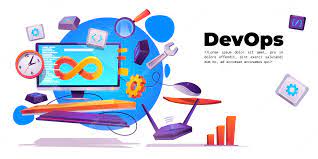Introduction
In the ever-evolving realm of technology, the role of a DevOps engineer has emerged as a pivotal force, seamlessly bridging the gap between development and operations teams. Kelly Technologies recognizes the growing demand for skilled professionals in this domain and aims to empower aspiring individuals through comprehensive DevOps Training in Hyderabad. In this guide, we delve into the essential skills, knowledge, and mindset required to embark on a successful journey as a DevOps engineer.
Understanding DevOps
DevOps, a portmanteau of Development and Operations, is a cultural and professional movement that emphasizes collaboration, communication, and integration between software developers and IT operations professionals. The primary goal is to streamline the software delivery process, ensuring faster and more reliable releases.
Key Skills for a DevOps Engineer
Scripting and Coding Skills: DevOps engineers should be proficient in scripting languages like Python, Ruby, or Shell, enabling them to automate tasks and processes efficiently.
Version Control: Mastery of version control systems such as Git is crucial for tracking changes in code and collaborating with team members effectively.
Continuous Integration/Continuous Deployment (CI/CD): Understanding CI/CD pipelines and tools like Jenkins is essential for automating the building, testing, and deployment of software.
Infrastructure as Code (IaC): Proficiency in tools like Terraform or Ansible allows DevOps engineers to manage and provision infrastructure through code, ensuring consistency and scalability.
Containerization: Knowledge of containerization platforms like Docker and container orchestration tools like Kubernetes is vital for creating portable and scalable applications.
Monitoring and Logging: DevOps engineers must be adept at implementing monitoring solutions (e.g., Prometheus) and logging tools (e.g., ELK stack) to ensure the health and performance of systems.
Collaboration and Communication: Effective communication and collaboration skills are essential for fostering a culture of shared responsibility and continuous improvement within the DevOps team.
Education and Training
To embark on a career as a DevOps engineer, individuals should consider specialized training programs, such as the one offered by Kelly Technologies in Hyderabad. These programs cover a comprehensive curriculum that includes hands-on experience with industry-relevant tools and practices.
The DevOps Mindset
Becoming a successful DevOps engineer goes beyond technical skills; it requires adopting a mindset that values collaboration, empathy, and continuous learning. DevOps Course in Hyderabad is not just a set of practices but a cultural shift that emphasizes breaking down silos and fostering a collaborative environment.
Transitioning to a DevOps Role
Assessing Current Skill Set: Begin by evaluating your current skills and identifying areas that need improvement. This may include learning new programming languages, understanding cloud platforms, or gaining experience with automation tools.
Hands-On Experience: Practical experience is invaluable in the world of DevOps. Consider taking on real-world projects or contributing to open-source projects to build a robust portfolio.
Networking: Engage with the DevOps community through online forums, meetups, and conferences. Networking provides opportunities to learn from experienced professionals, gain insights, and stay updated on industry trends.
Certifications: While not mandatory, certifications like AWS Certified DevOps Engineer or Docker Certified Associate can enhance your credibility and validate your expertise.
Challenges in the DevOps Journey
The DevOps journey is not without its challenges. Organizations may face resistance to change, cultural barriers, or a lack of understanding of DevOps principles. DevOps engineers need to be resilient, patient, and effective communicators to overcome these hurdles.
Future Trends in DevOps
As technology continues to evolve, DevOps is poised to adapt and embrace emerging trends. The integration of artificial intelligence, machine learning, and serverless computing are some areas where DevOps is expected to make significant strides.
Practical Experience
Hands-on experience is invaluable in the DevOps realm. Consider working on personal projects, contributing to open-source projects, or participating in internships to gain practical exposure. Real-world scenarios offer insights that go beyond theoretical knowledge.
Conclusion
Becoming a DevOps engineer is a journey that requires a multifaceted approach. It involves not only acquiring technical skills but also embracing the collaborative and communicative aspects of the DevOps philosophy. By focusing on automation, version control, IaC, CI/CD, and containerization, combined with educational pursuits, certifications, practical experience, and community involvement, one can navigate the intricate landscape of DevOps successfully. As you embark on this journey, remember that the road to becoming a proficient DevOps engineer is marked by continuous learning, adaptability, and a commitment to fostering a culture of collaboration and efficiency. This article abcbnews should provide you with a clear idea.




